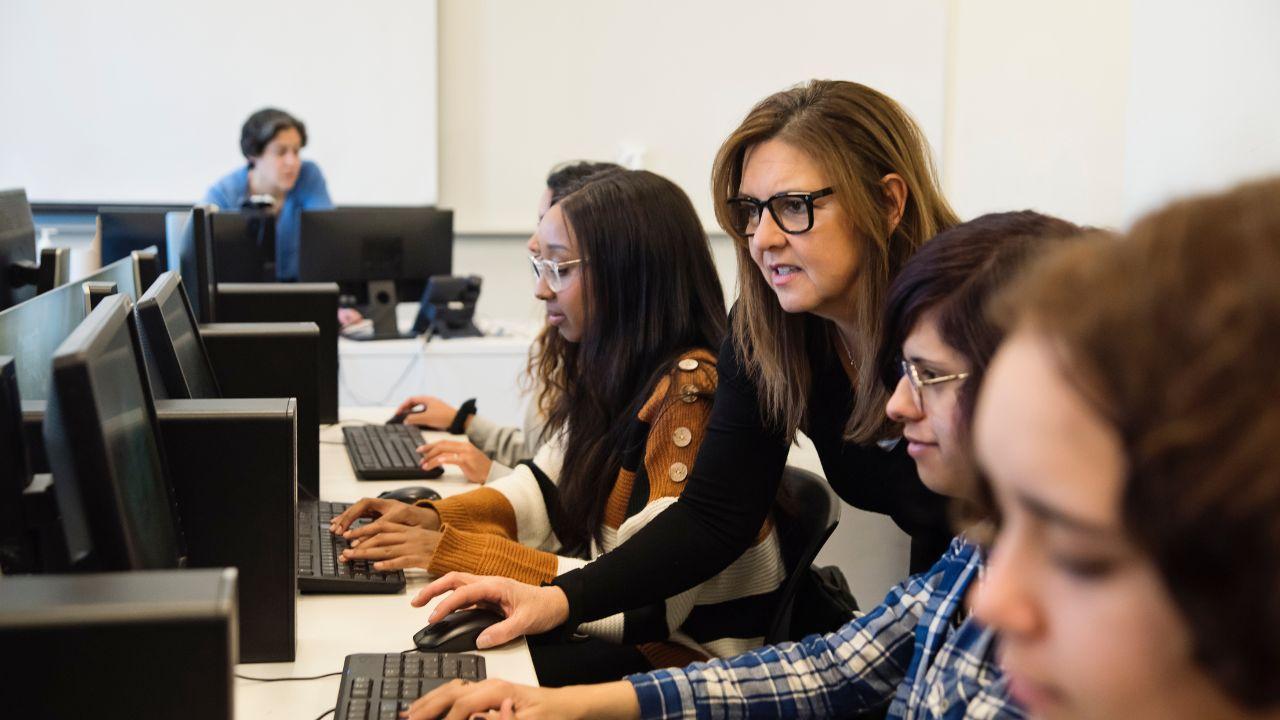
Post by : Vansh
In today’s fast-changing world, technology is no longer a luxury—it’s a necessity. The way we learn, teach, and communicate has dramatically evolved, especially in the field of education. One of the most groundbreaking changes is the rise of smart classrooms. With interactive tools, real-time data access, and innovative teaching methods, smart classrooms are creating smarter students ready for the digital age. This transformation is reshaping the educational landscape and giving students the tools they need to succeed in the future.
Smart classrooms are learning environments enhanced with advanced technological tools designed to improve the teaching and learning process. These include digital whiteboards, projectors, high-speed internet, learning management systems, AI-powered software, and sometimes even virtual reality (VR) and augmented reality (AR) applications. The primary goal of a smart classroom is to make education more interactive, personalized, and accessible to students of all learning styles.
Gone are the days when students relied solely on textbooks and chalkboards. Today, teachers can share content digitally, explain concepts through videos and animations, and even monitor students' progress in real-time. This integration of tech tools makes learning more engaging and effective.
One of the most noticeable benefits of smart classrooms is the boost in student engagement. Traditional classroom settings often struggle to hold the attention of students, especially those who are visual or kinesthetic learners. However, with smart technologies, lessons can be made interactive, immersive, and fun.
For instance, digital quizzes and games can be used to reinforce lessons, while real-time polling tools allow every student to participate, not just the ones who raise their hands. When students are actively involved in their learning process, their retention and understanding of the subject matter improve significantly.
Every student learns differently. Some grasp concepts quickly, while others need more time and practice. Technology allows educators to tailor lessons to meet individual learning needs. With adaptive learning software, students can move at their own pace and get instant feedback on their performance.
This level of personalization is almost impossible to achieve in a traditional classroom with one-size-fits-all teaching methods. But smart classrooms can track a student’s progress, identify weak areas, and suggest additional resources or exercises for improvement. This helps students build confidence and master subjects more efficiently.
Another major advantage of smart classrooms is the ability to assess students in real time. Teachers can monitor progress through dashboards that display analytics on attendance, test scores, participation, and more. This instant data helps educators understand how well their students are performing and make quick adjustments to their teaching strategies if needed.
Moreover, students also benefit from immediate feedback. Instead of waiting days for test results, they receive instant evaluations, which helps them understand their mistakes and correct them on the spot.
Incorporating technology into education is not just about making learning easier—it’s also about preparing students for life beyond the classroom. In today’s digital economy, basic tech skills are essential in almost every profession. Smart classrooms help students become comfortable with using digital tools, which gives them a significant advantage in higher education and the workplace.
From learning to navigate software platforms to developing problem-solving and critical-thinking skills, students gain valuable experience that extends far beyond academic content. This exposure prepares them to become adaptive, innovative, and tech-savvy individuals.
Technology also plays a powerful role in bridging educational gaps. In many parts of the world, access to quality education remains a challenge. Smart classrooms can make a big difference by offering remote learning opportunities. With internet access and digital tools, students in rural or underserved communities can connect with expert teachers and global learning resources.
Furthermore, inclusive technology—like screen readers, voice recognition tools, and customizable displays—ensures that students with disabilities also receive an equitable learning experience. Smart classrooms promote education for all, regardless of background or ability.
Despite all the benefits, the shift to smart classrooms does come with challenges. There are concerns about screen time, cybersecurity, data privacy, and unequal access to devices and internet connectivity. Training teachers to use new technology effectively is also crucial, as even the best tools are only useful if used properly.
To overcome these challenges, schools and governments must invest in infrastructure, digital literacy, and professional development for educators. With proper planning and support, the future of smart education is bright and full of possibilities.
This article is intended for informational and educational purposes only. The views and content presented do not represent professional advice. MiddleEastBulletin is not responsible for any decisions made based on the information provided.










Portugal Confronts Ireland in Pivotal World Cup Qualifier
Portugal, led by Cristiano Ronaldo, faces Ireland in a vital Group F World Cup qualifier that could

Haaland's Brilliance Leads Norway to 4-1 Victory Against Estonia
Erling Haaland showcases leadership as Norway crushes Estonia 4-1, boosting their World Cup ambition

Hawks Triumph Over Jazz; Suns and Raptors Secure Victories
Hawks' Onyeka Okongwu and Jalen Johnson lead in a thrilling win against Jazz; Suns and Raptors also

Indian Men's Recurve Team Clinches First Asian Gold in Nearly Two Decades
The Indian men's recurve team triumphed over South Korea, securing their first Asian gold in 18 year

Kolkata Knight Riders Hire Tim Southee as Bowling Coach for IPL 2026
KKR welcomes Tim Southee as their new bowling coach for IPL 2026, aiming to enhance their bowling st

Young Indian Talents Gear Up for Asia Cup Rising Stars 2025
India A is set to start the Asia Cup Rising Stars 2025 with promising talents like Suryavanshi and A